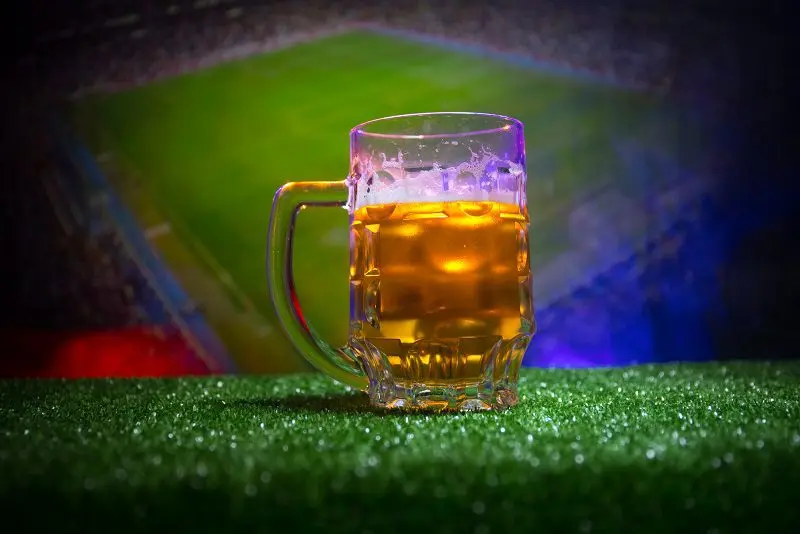One of the features of human nature is the desire to get everything at once: benefit and pleasure, relaxation and high results. That is why the question of whether alcohol and sports are compatible is periodically put on the agenda. The discussions involve scientists, sports physicians, instructors, professional athletes and strength training enthusiasts.
It would seem that there is nothing to argue about: combining drinking and high physical activity is contraindicated, regardless of the degree of fitness and health status. However, there are many supporters of “relaxation” after visiting a sports club, including among professional athletes.
How alcohol affects the body
What happens when a person drinks a glass of wine or a sniffer of cognac and experiences a pleasant feeling of relaxation? In fact, this short-term euphoria is nothing more than the beginning of oxygen starvation of the brain. The ethanol contained in alcoholic beverages begins its journey through the circulatory system after a minute, causing the red blood cells to clump. Reaching the brain, these clots cause hypoxia. Following the release of endorphins and the stage of light intoxication, more serious consequences come:
- reactions become inhibited:
- there is a loss of concentration;
- reduced performance;
- dehydration of muscle tissue occurs;
- sleep disturbances are noted, which leads to a violation of the production of growth hormone.
The influence of alcohol lasts from 1 to 3 hours, then for several hours the body is poisoned by the decay products of alcohol. And even after two days, physical activity will remain reduced. In a word, the deterioration of well-being is almost inevitable, although its degree will depend on the amount of alcohol consumed and the general state of health.
Sports after alcohol
Even small doses of alcohol lead to impaired motor skills and a decrease in reaction. For team sports, this is fraught with injuries to players and, in general, negatively affects team coherence.
Alcohol taken before strength training causes dehydration and reduces energy potential – the body spends energy on removing toxins and is not able to absorb nutrients. Amino acid deficiency provokes muscle starvation, primarily affecting the work of the heart muscle. In any case, it is better to refuse cardio training on this day so as not to overload your “motor”.
In professional sports, the problem of drinking strong drinks is especially relevant for various types of shooting, pentathlon, motorcycle racing, aeronautics, bowling – those disciplines that require high accuracy and suppression of conditions associated with hand tremors. The World Anti-Doping Agency prohibits the use of alcohol by representatives of these sports – it is officially recognized as doping, which can give an advantage to athletes.
Amateur sports are not regulated by such rules – therefore, here self-control and the ability to “press the brake” in time come to the fore. If it so happened that a festive feast with libations cannot be avoided, it is better to return to the gym after the complete removal of toxins from the body – in about two days.
Alcohol after training
Each workout is an increased load, forcing the muscles to work in extreme mode. Under such conditions, alcohol after sports prevents the restoration of physical fitness, harming the body, which is already conditionally dysfunctional and needs to be replenished.
During the performance of strength exercises, an intense loss of moisture occurs, which exits through the sweat glands. Drinking a bottle of diuretic beer after class will lead to even more dehydration. The consequences of a fresh injury or bruise will also worsen – alcohol promotes vasodilation, resulting in edema and swelling, and the healing of damaged tissues slows down.
The use of stronger drinks can significantly slow down the recovery process, since alcohol inhibits the functions of the hormones involved in it.

There is a popular myth that is cited as an argument by those who like to relax at the end of competitions or training. It is more about track and field athletes – supposedly beer helps them relieve muscle spasms and replenish electrolytes after a long-distance race or marathon. A survey of readers conducted by the specialized magazine Runners World showed that more than 80% of them believe that the established tradition of “rewarding” themselves with a can of beer at the finish line does not conflict with the concept of a healthy lifestyle.
People who exercise regularly should not have to wonder how many hours after class it will be possible to drink. Even if alcohol does not interfere with recovery after a workout that has already ended, it will definitely affect the next one – it is possible that you will have to skip it.
Do athletes drink
When asked what the relationship of professional athletes with alcohol is, just look at the headlines of newspapers and online publications, in which the names of players from Russian football clubs are often inclined.
However, athletes from other countries also allow themselves such a weakness, it is enough to recall the famous football player Garrincha or swimmer Michael Phelps. And if Phelps, after staying in a rehabilitation center, managed to overcome his addiction and win “gold” at his fifth Olympics, then the fate of the aged Garrinchi and his colleague “of interests”, the English player Paul Gascoigne, was much sadder.









